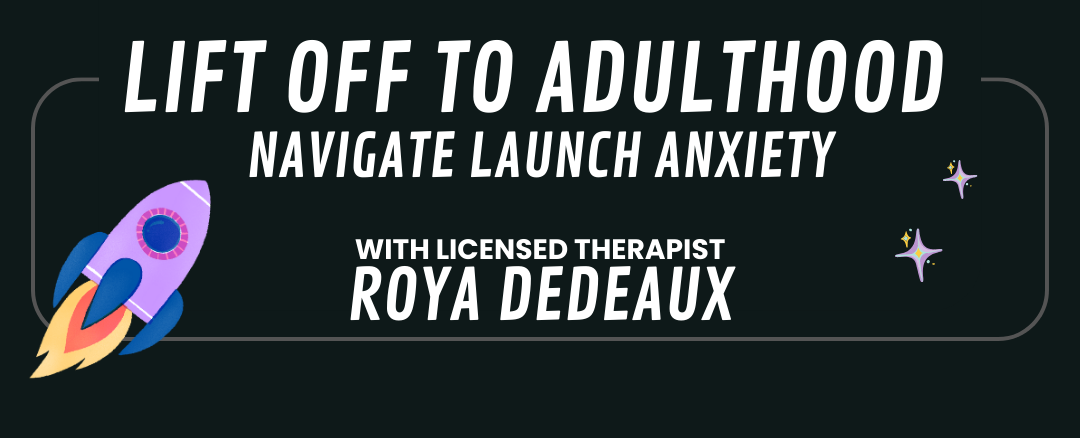My Teenager Thinks the World Is Depressing — How Can I Give Them Hope?
Roya Dedeaux, MS, LMFT
If you've got a teen at home who is constantly saying the world is depressing, you're not alone.
Between the natural disasters, election coverage, school shootings, and general angst and ennui, it’s no wonder many young people are feeling overwhelmed. But as a parent, it’s tough to hear. You want to fix it, give them hope, and help them see the bright side. So, how can you do that when they’re feeling so down?
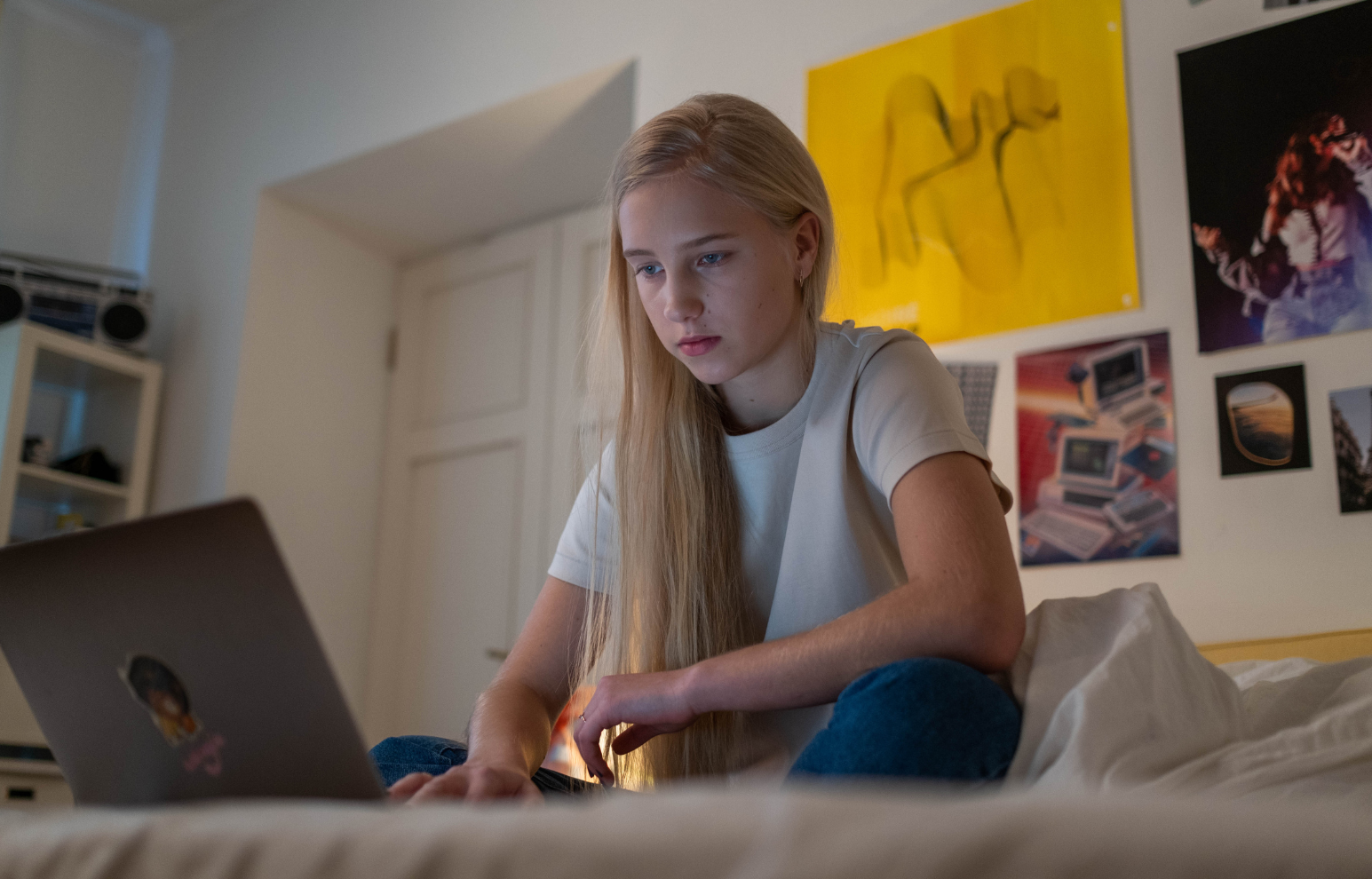
Acknowledge Their Feelings (Don’t Brush Them Off)
First things first, don’t dismiss their feelings by saying, “It’s not that bad,” or “You’ll grow out of it.” That doesn’t work. Teens are smart, and their feelings are real. They know when their world feels bleak, and they need you to acknowledge that.
They can also spot in-authenticity from a mile away. It might feel uncomfortable, but say something like, “Yeah, it does seem tough right now, and I can see why you feel that way.”
Validating their emotions shows you’re listening, and it builds trust. It also opens the door for them to keep sharing instead of shutting down.
Encourage Real Conversations About What’s Bothering Them
Teens are bombarded with negative news all the time—whether it’s about politics, climate change, or social issues. Sometimes, they don’t even fully understand what’s upsetting them; they just know it feels like everything is spiraling. Have you ever had that feeling - you can’t pinpoint a single thing that’s wrong exactly, but everything seems heavy or hard? As a parent, try to dive deeper.
Ask them:
“What specifically is worrying you?”
“Do you feel like there’s something you can’t control?”
“What part of the future seems the scariest to you?”
Once you get more specific, you can help them break things down and focus on smaller, manageable steps. If they’re overwhelmed by the state of the world, maybe there’s a local initiative they can get involved with, or maybe you can talk about ways to make a difference in their own life.
Help Them Find Purpose
Feeling powerless is often at the root of hopelessness. Teens want to feel like they have some control over their lives and the world around them. Helping them find a sense of purpose can be a game changer.
Encourage them to get involved in causes they care about, whether that’s environmental activism, social justice, or something creative. Purpose isn’t just about career goals—it’s about finding something that makes them feel like they’re contributing. When they feel like they can make even a small impact, the world feels a little less dark.
Sidebar: If getting outside in the world and dealing with people feels like too big a step for a kid who is struggling with anxiety and overwhelm…I’d like to suggest literally putting controls in their hands. PLAY VIDEO GAMES. I’m not kidding. Playing games helps us build optimism, resourcefulness, look for ways we can impact change, and helps us feel more in control!
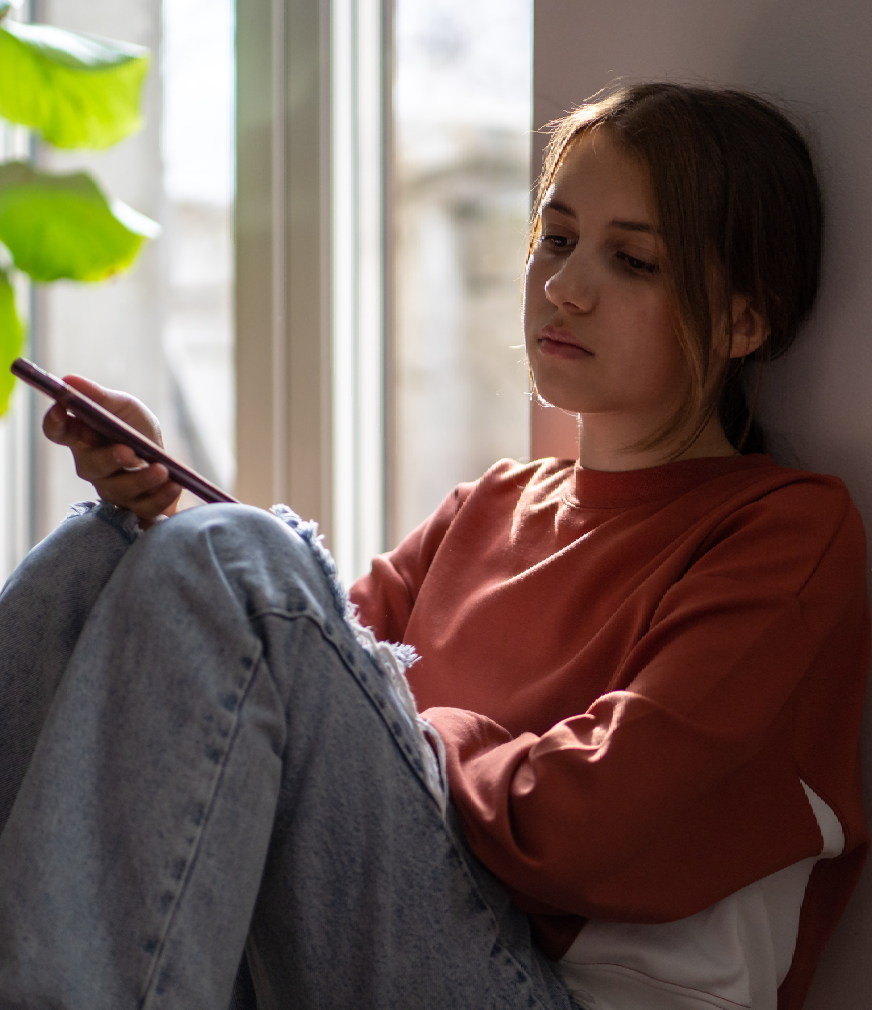
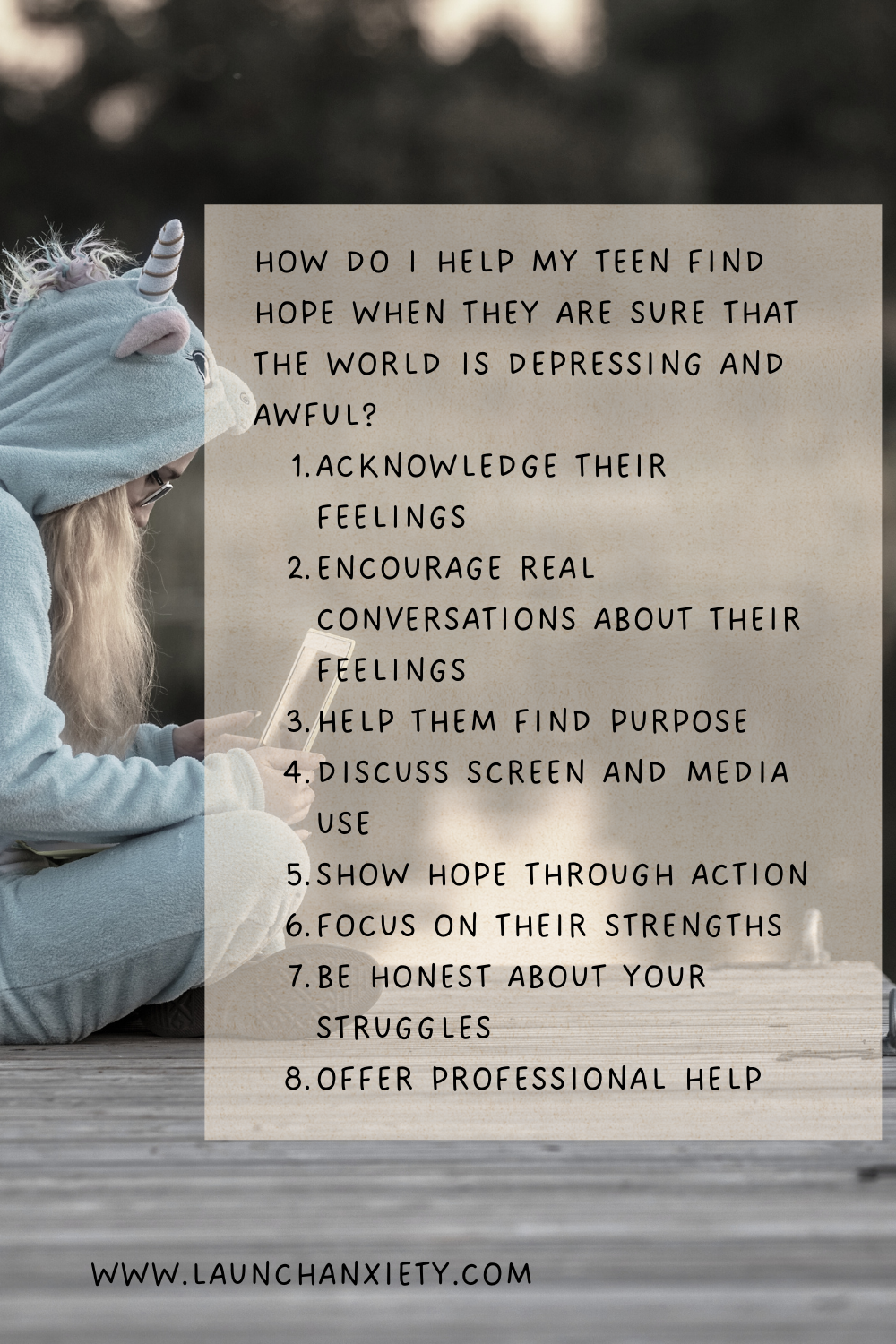
Discuss Screen Time & Media
I’d like to make it very clear that I am not saying to limit their screen time, or for you as their parent, to impose any sort of rule that prevents them accessing their media. But I want you to talk about their media intake the same way you’d talk about food intake for yourself.
What feels like "junk food," versus something that feels more nutritious? What feels like a once in a while treat, versus a healthy staple? What might make their stomach hurt, or need to be on pause for a little while? What do we eat (or watch, or consume) when we want comfort? How is what we are consuming serving us? Help your teen become conscious about their sense of doom and gloom as a direct result of what kind of content they are consuming – this includes social media, YouTube, TV, books, music, and more.
Note: If you are not saying, “Social media is bad STOP” then it allows you to be on their team and help them brainstorm ways they can consume in a healthier way. So make sure you’re in partnership with them on this one! And remember - most of us have to actually eat to the point of stomachache to learn better next time, the same is true for media consumption.

Show Them Hope Through Action
Teens might be cynical, but they’re not immune to optimism. The best way to inspire hope is through action. You don’t need to give them a big speech about how “things will get better,” because, let’s face it, sometimes they might not. Instead, show them how people are creating change, even in small ways. Point out community helpers, everyday kindness, and local activism. Help them see that not everyone is sitting back and accepting things as they are.
Maybe it’s time to step up your own volunteer game, show them first hand how you use active contribution to help you feel like you are a part of something bigger.
Focus on Their Strengths
Teens often feel like they don’t matter, that they’re just drifting through life. A huge way to help them feel hopeful is to remind them of their strengths.
Maybe they’re a talented artist, a great listener, or have a passion for science. Whatever their thing is, lean into it. Help them build on their strengths and remind them that they have something valuable to contribute, even if the world feels overwhelming.
Pro tip: these strengths are to be found in whatever they are interested in, so make sure you are spending lots of time with your teen doing things they love to do, even if they feel silly.
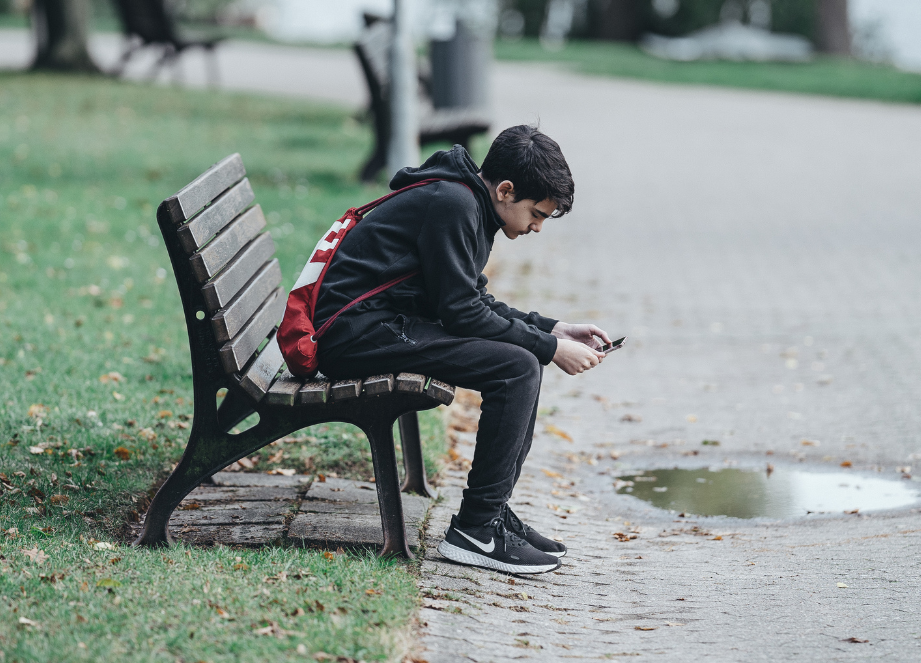
Be Honest About Your Own Struggles
It’s easy to think you need to put on a brave face for your teen, but honesty can be refreshing. If you’ve had moments where you’ve felt down about the state of the world, share that with them. Tell them how you managed to find hope or make peace with uncertainty. It humanizes you and shows them that even adults struggle, but you can still find a way to move forward.
Please note, as a therapist - I don't tend to advocate giving examples of depressing situations *without* the piece where you made meaning from it, persevered til you found a solution, or figured out that you had more strength than you realized. Make sure you're giving the full picture to your teen - the struggle AND the work to find a solution.
Offer Professional Help When Needed
Sometimes, even with all your support, your teen may still struggle to find hope. And that’s okay. It’s not a reflection of your parenting. If their sadness or hopelessness seems like it’s too much for either of you to handle, it might be time to bring in a therapist. Having an outside perspective can help them navigate these feelings in a healthy way. There’s no shame in getting help when it’s needed. Click here to find out more about my online therapy services for teens and their parents.
For teens who are resistant to traditional therapy: try my online art and writing group for teens. No pressure to show up on camera, open-ended art prompts designed to help them know themselves better and better.

Final Thoughts: You Don’t Have to Have All the Answers
Your teen may be feeling overwhelmed by how tough the world seems, but you don’t need to fix everything. What they really need is to know that you’re there, that you see them, and that they’re not alone in feeling this way. By offering validation, helping them find purpose, and leading by example, you’re already giving them more hope than you realize.
And remember, it’s okay to admit that sometimes the world is tough. But by facing it together, you’re showing them that there’s always a way forward—even when things feel dark.
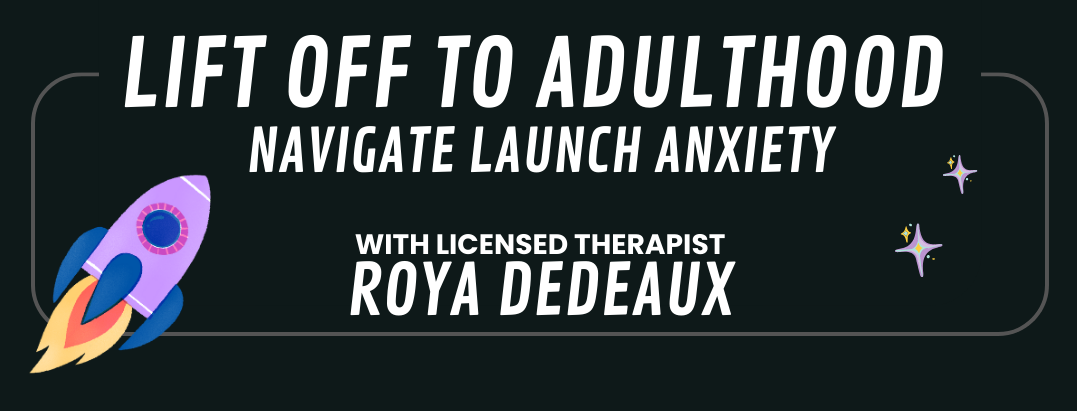
For practical advice navigating the challenging lift off to adulthood, download my free parenting guide here!
30+ pages of ideas, inspiration, and solution-focused exercises for parents of teenagers.

Roya Dedeaux is a Licensed Marriage and Family Therapist with a focus on using creative tools like art, writing, and recreation as a way to help teens and their families navigate adulthood anxiety.
Roya loves running her private practice, her online art group for teens, and helping teens & their parents through her various workshops and webinars! When she's not doing that, she loves to make messes with her three wild & wonderful kids where they live and play hard in Southern California.
Check out more about Roya, therapist, author, & speaker at
www.launchanxiety.com
Launch AnxietyBlog
